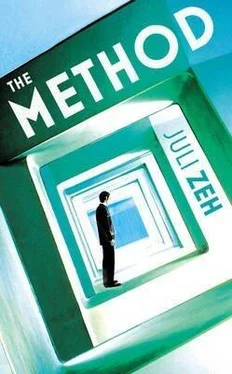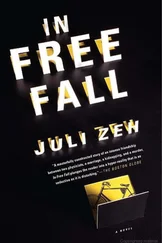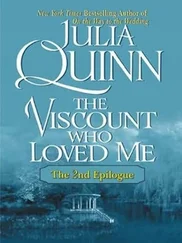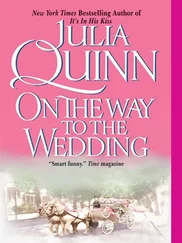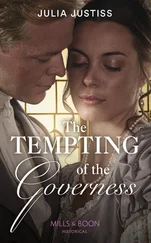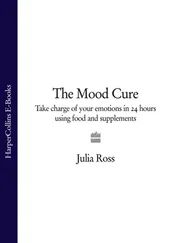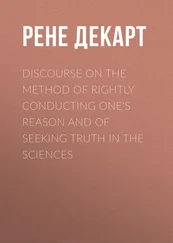She leaves the bedroom and her shoulder grazes the door frame. We see her cross the corridor and enter the lounge, pick up a remote control and turn on the stereo, racking up the volume. We don’t hear her scream; we see her wide-open mouth and the way she stumbles, and we think she is going to fall. But Mia keeps going and reaches the window, her raised hands thudding against the pane. Knocked back, she takes another run-up and slams both palms against the window. Because of the music, we don’t hear the noise of breaking glass. Carried by her momentum, Mia’s arms pass through the shattering pane, and she snatches at nothing, tipping forward, then catching her balance before she hits the jagged edge of the frame. She grabs at the shards and clenches her fists, her eyes are closed and we see her lips tremble, her eyes looking up beneath their lids. We see her knuckles blanch and blood leaking out between her fingers as if she were crushing something soft and red. Then she unclenches her fists, shakes her arms and fragments of glass fall to the ground. Blood streams past her elbows as she raises her hands and clasps them together. ‘Take it away,’ we read the words on her lips, ‘take it away, won’t you?’ and she moans, as if the thing to be taken is unbearably heavy. Again and again she raises her hands beseechingly, and for a terrible moment we think she might actually be talking to us.
Imagine this: on this particular night and all the others like it, she doesn’t fight her duvet, doesn’t get up, doesn’t run to the window, doesn’t smash the glass, she just lies there, sleepless in the posture of someone sleeping — and now we start to get a sense of what she’s going through.
‘FRAU HOLL,’ SAYS Sophie, passing the back of her hand over her face, ‘I’m afraid you’ll have to tell me what you mean by personal matter .’
Mia jumps to her feet and paces around the room as if searching for windows, of which there are none.
‘I want to be left alone,’ she says finally.
‘Return to your seat, Frau Holl.’
‘I’m not a schoolgirl any more. Certain things require time, and that’s what I’m asking for — time to myself.’
‘Frau Holl,’ says Sophie sharply, ‘you’ve committed a series of civil infractions, and now you’re dangerously close to a criminal trial. Please sit down.’
Mia complies and the severity leaves the judge’s features as quickly as it came. Briefly, so briefly it might be a trick of the memory, we caught a glimpse of an angry face.
‘I’d like you to think about this carefully,’ says Sophie. ‘What would happen if you fell ill?’
‘I’d see a doctor.’
‘Who would pay for the doctor?’
‘I … I can afford to pay.’
‘And if you didn’t have the means? Would society let you die?’
Mia is silent.
‘Good sense dictates that society should look after your health in times of need,’ says Sophie. ‘By the same token, the onus is on you to ensure such circumstances don’t arise. Do you see?’
‘I wouldn’t mind being ill,’ says Mia stubbornly.
‘Frau Holl,’ exclaims Sophie, ‘do you have any idea what you’re talking about? Have you ever felt physical pain so intense you feared for your mental health? Do you know how dreadfully people suffered in the past? They watched themselves die by degrees and they called it living . Every step of the journey was a risk, a step towards perdition; a twinge in the chest, a tingle in the arm, and the end was in sight. People lived in constant fear of foundering on themselves; fear was life for these people. For humans to have risen above this condition is a blessing, don’t you think?’
Mia is silent.
‘I see you agree with me, Frau Holl. Avoiding all forms of illness is in your interest, and your personal interests coincide with those of the Method on this point. Oneness of purpose is the foundation of our system: there can be no room for personal matters when the general good and individual interests are connected in this way.’
‘I know,’ says Mia softly.
‘You’re not setting out to undermine the principles of the Method, then?’
‘I’m a scientist, Your Honour. People in my profession know better than anyone that biological organisms seek to achieve well-being and avoid pain. Political systems are legitimate only if they serve these goals.’ Mia wipes her palms on her trousers. ‘I’m not trying to be difficult, Your Honour. I’m not myself any more, I’m probably talking nonsense, but I’ve always supported the Method.’
The conciliatory expression returns to Sophie’s face. ‘Exactly as I thought. Your final submission please.’
‘I’d like to be left alone.’
‘Are you sure?’ Sophie opens the file with a sigh and picks up a pencil. ‘I could refrain from prescribing auxiliary measures, I suppose.’
‘That would be helpful.’
‘On one condition,’ says Sophie. She looks up, pencil poised. ‘From now on you’ll stay out of trouble.’
‘I’ll try.’
‘No, Frau Holl. You will do more than try. This is an official warning. Give me your word.’
Mia raises an eyebrow, then raises her hand.
‘There’s no need to worry,’ she says.
WE’RE GOING TO switch tenses for a while. Mia finds it painful to think of her brother in the past tense, but the rest of us will be fine.
‘There’s no need to worry,’ said Moritz.
‘You smell funny,’ said Mia.
‘I smell good . I smell human.’
‘Your future partner might not think so.’
‘Let me tell you a secret. So far my future partners have found me pretty hot.’ He grabbed her hand. ‘Come on.’
‘Moritz! Can’t you see?’ she protested. ‘The path ends here !’
‘It always has done!’
There followed a tug of war, with Moritz grabbing Mia and dragging her along with both hands until she came of her own accord. Ducking under low-hanging branches, they tramped through the undergrowth. The path belonged to them. Beside the river was a little clearing shaded by trees. Moritz called it ‘our cathedral’. A place of prayer, he liked to say. By prayer, he meant talking, saying nothing and fishing. Mia didn’t approve of raising the stakes: she liked talking to her brother without it being a religion.
Moritz pulled some fishing line from his bag and snapped a branch from a tree. In no time he had sat down on the grass and cast his line; Mia was still unfolding a tissue to sit on. For a while they watched the water flowing by incessantly while the river remained exactly the same.
‘Claudia?’ enquired Mia.
‘That was her name.’
‘Well?’
‘Lovely girl — an expert at deep-throating. You know what that is?’
Mia held up a hand to stop him. ‘I don’t want to know, thank you. You must be running out of immunologically compatible partners. How many have you got left?’
‘Oh, 3.4 million or thereabouts. The Central Partnership Agency is the world’s biggest brothel keeper — the crooked guardian of the gates to paradise.’
Still holding his makeshift fishing rod in one hand, Moritz stretched out his arms and put on a saccharine voice: ‘Step forward, please. Major histocompatibility complex class B11. Slim hips, brown hair, twenty-four years of age, perfect health. Premium goods.’
‘Who’s next, then?’
‘Kristine. An absolute dream girl.’
‘Promise you’ll take her seriously.’
‘Doesn’t it go without saying?’ Moritz grinned. ‘Seriousness is the first rule of pleasure. Anyway, how are you getting on with your sixteen-legged microbes?’
Читать дальше
